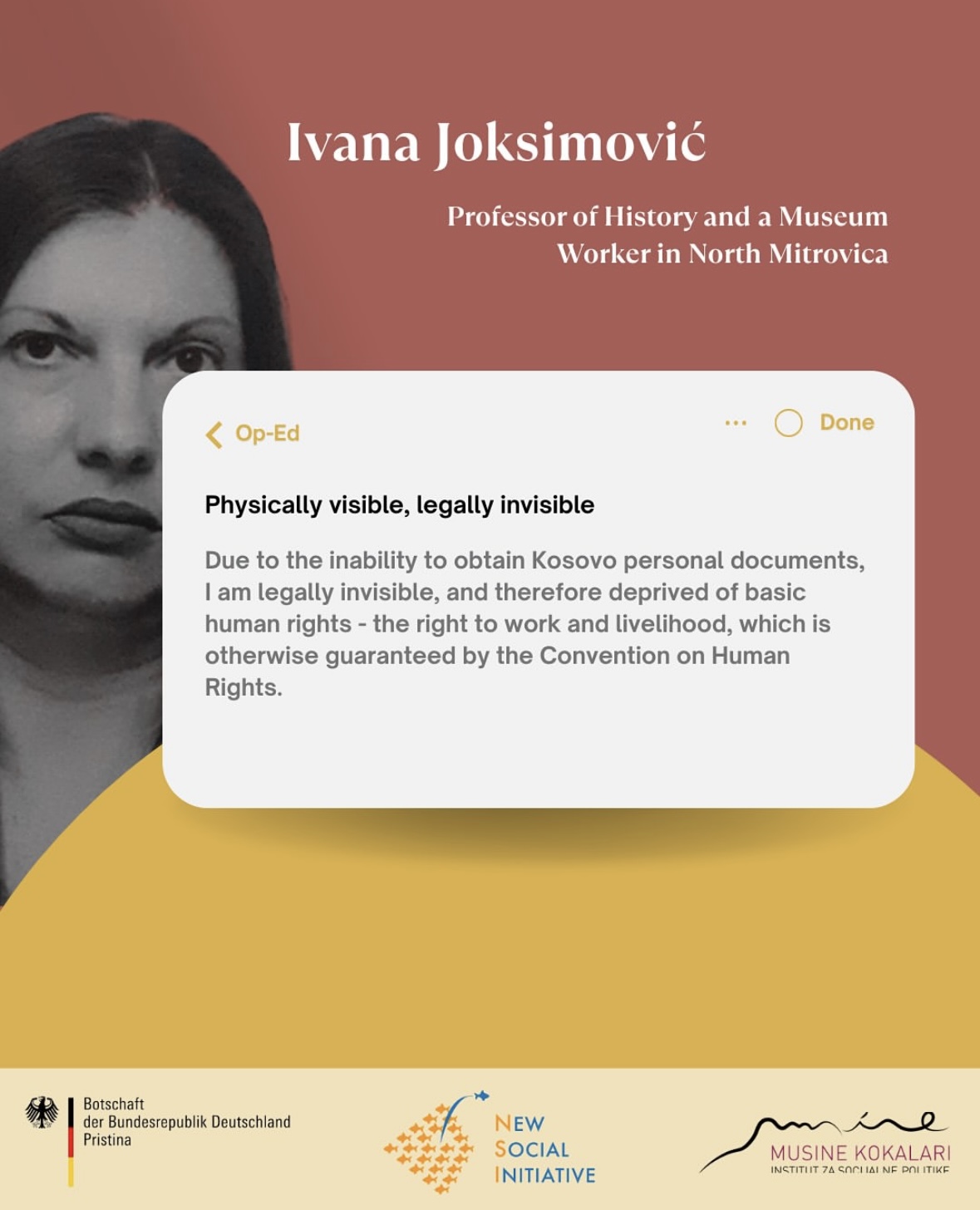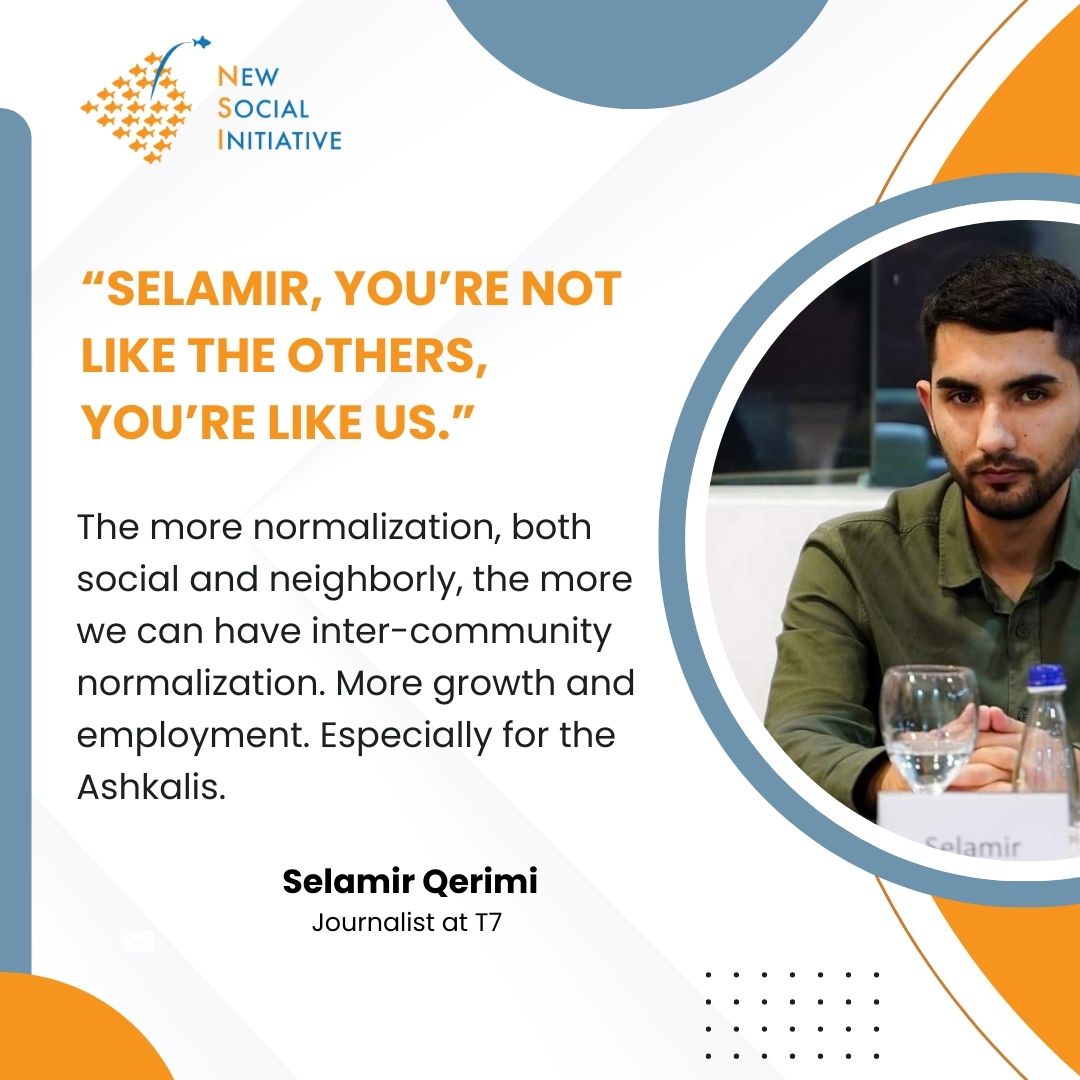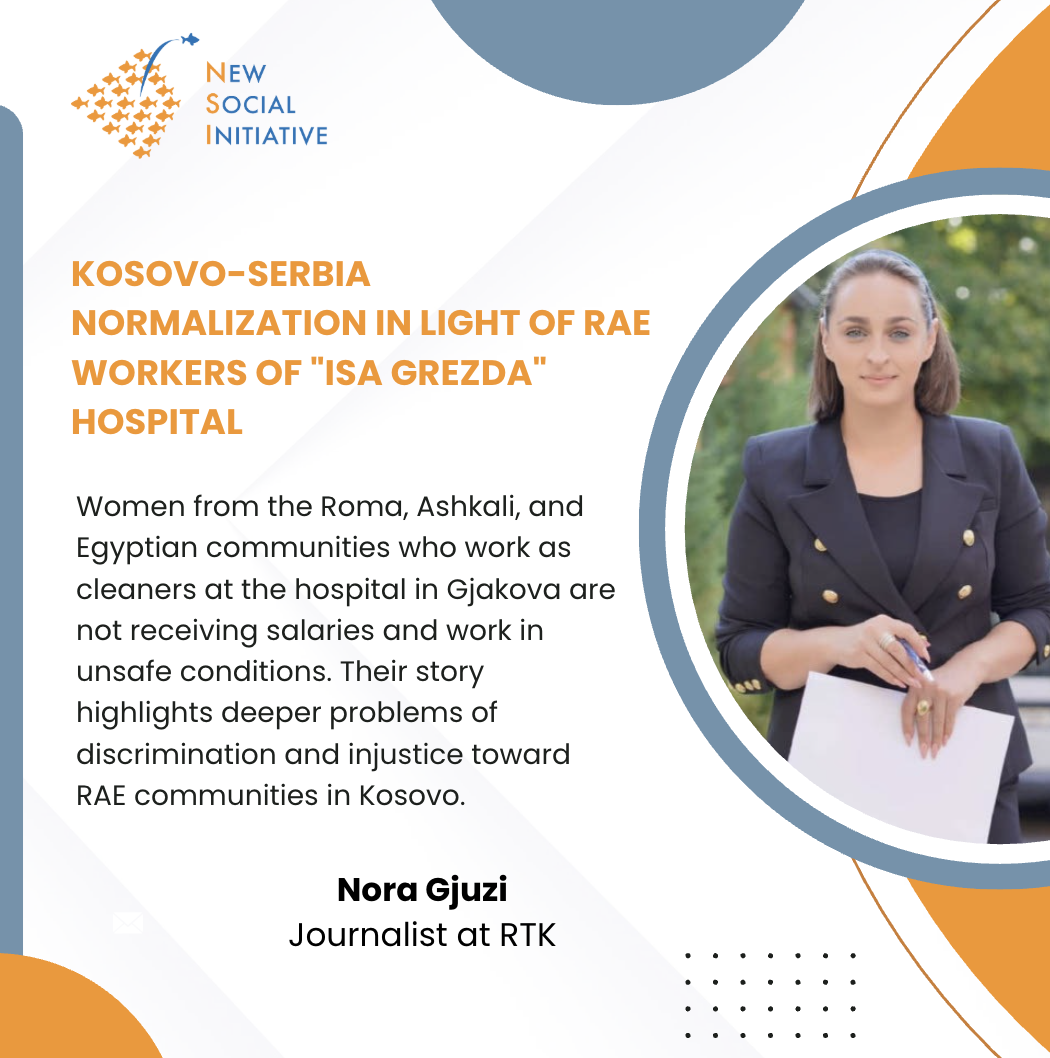Compromise is a good thing. It is one of the fundamentals of our modern civilization. Historically, outcomes were dictated by power, if you had it you were up and if you did not you were down. Replacement of this approach with one that regulates matters and resolves disputes based on dialogue, understanding, and compromise lies at the core of peace and prosperity. It is the essence of relations among progressive, peaceful, and democratic nations.
In the Balkans, people seem to be generally tired of compromises. This is partly because we never embraced the concept fully and partly because people do not detect their proper value, they do not see their advantages. This notion is prevailing in Kosovo, too. A frequently heard statement is “we have made too many compromises/concessions and have not received their corresponding rewards; there is, therefore, no room for more.” In part, this statement is true: since Rambouillet and throughout the post-war institution-building, down to Ahtisaari and the ‘golden age of the normalization dialogue with Serbia, the Kosovo leadership has indeed chosen the path of constructive engagement. However, the part claiming that benefits did not follow from the compromises does not stand. In most essential terms, Kosovo has seen enormous benefits from all the milestone compromises.
One dimension of the benefits that tends to be overlooked is the effects of the big and small compromise-driven decisions have and are still making to Kosovo’s international standing and internal democratic consolidation.
Let’s begin with community rights, as one of the more complex and substantive concession areas in any country, especially in a post-conflict period. As it is now known, through various phases, Kosovo has built an advanced system of community rights protection and promotion institutional provisions and mechanisms. Some specialized institutions and laws guarantee equitable representation at all levels; there are provisions for the protection of religious sites, property, and personal security, there is guaranteed media space in community languages, there are bilingual and multilingual provisions for institutions at every level, there are percentages allocated to communities in the law enforcement and public administration, presence in the central government is guaranteed by the Constitution, which by the way cannot be amended without the approval of non-majority Members of Parliament (MPs), who by the way have reserved seats in the Assembly of Kosovo. This is a remarkable achievement and a strong line of defense for Kosovo against undue accusations in the international arena. Indeed, with ethnicity vs. governance being at the core of the Kosovo conflict, integrating an advanced system for affirmative action and fair representation of communities in governance – as opposed to ethnic majorization by the winning side – is an extremely strong argument against claims of a lack of democracy and human rights that international opponents have made and may do so again.
Just recently we saw how that worked. When Europa Nostra nominated the Serbian Orthodox Monastery of Visoki Dečani for the list of Europe’s Seven Most Endangered Monuments, the Government and civil society of Kosovo had a range of ready-made arguments at their disposal. A joint letter by President Vjosa Osmani and Prime Minister Albin Kurti sent in mid-March to Europa Nostra inter alia notes that “…the state of Kosovo has guaranteed all the constitutional, legal, institutional and political guarantees for the protection and advancement of the rights of all non-majority communities in our country… In a special way and with constitutional and legal provisions that include affirmative measures, the state of Kosovo has built and implements the framework for guaranteeing and protecting the cultural rights of the Serb community. In this context, our institutions have included in the state legislation all the provisions of the Ahtisaari Plan related to the protection of cultural and religious heritage. Specifically, the institution of the Serbian Orthodox Church, as well as the monasteries and orthodox churches Kosovo, enjoy all the constitutional, legal and institutional guarantees that ensure full respect for their rights.” Minister of Culture Hajrullah Çeku further referenced the Kosovo Law on Special Protective Zones and its guarantees for 45 Serbian Orthodox sites in Kosovo and its supervisory body, the Implementation and Monitoring Council.
Here is therefore a clear example of a line of defense against a potentially politicized placement of the Monastery on the endangered list sites. A large portion of arguments that the Kosovo leadership chose were straightforwardly based on the Ahtisaari Plan’s provisions for the Serbian Orthodox Church, now firmly embedded within the Kosovo legal framework. These provisions were once a painful compromise, and have now turned into a ready-made argument against an unwelcome move in the international arena. The clarifications provided by Europa Nostra are an indication that the Kosovo arguments were noted. When the organization sends a team to Kosovo to evaluate whether the Monastery is endangered, the advanced legal and institutional protection existing in Kosovo for Serbian Orthodox churches will be a crucial factor to point out to the contrary. In this regard, a minor point of advice to the government if it is compelled to react again in the future: the line of argumentation in the letter to Europa Nostra would have been stronger if you referred to the Monastery as ‘Visoki Dečani’ – its official name, given in one of Kosovo’s official languages – rather than as ‘Monastery of Deçan’. Arguably, this would have shown more commitment to church and community rights, a key point of the joint letter.
Another major point from the Ahtisaari provisions was decentralization, i.e., creating new Kosovo Serb majority municipalities. The process of their establishment in 2009 involved a major campaign and countless opposing voices who argued that this would disintegrate the Kosovo governance structure, strengthen ethnic divisions, and get the Serb community further distanced from the Kosovo institutional framework. The critics, therefore, saw the Ahtisaari decentralization as another major and pointless concession.
Thankfully, the Kosovo institutional leadership, with the support of the International Civilian Office and the diplomatic presence in Kosovo, opted to go ahead and it is now easy to see how the result is the exact opposite of what the criticism entailed. Thus, much unlike before 2009, the Serbs living in Gracanica, Novo Brdo, Partes/h, and Ranilug/k are fully-fledged citizens of Kosovo. They all have Kosovo ID cards and civil registry standing, their vehicles and businesses are registered with Kosovo institutions, the municipal administrations function within the Kosovo legal framework, the community votes regularly in Kosovo central and local elections, Kosovo tax revenue is at a similar rate as elsewhere in Kosovo, and so forth. Beyond these administrative features, it is also quite visible that inter-ethnic relations have improved by the decentralization, to the point of even featuring elements of social cohesion: restaurants in Serb-majority municipalities are frequented by Albanians from surrounding municipalities, Serb’s shop at nearby supermarkets and malls in Albanian-majority municipalities, a number of Albanian-owned businesses and/or joint Serb-Albanian ventures have opened, and the overall context when one visits any of these municipalities is that of safety and normalcy. Again, all this stemmed from concessions and compromises but has turned into a major success story for Kosovo. It demonstrated the ability of Kosovo to integrate the Serb community – a major challenge given the conflict legacy – through smart and peaceful governance solutions. As such, it should be a point of pride for Kosovo and a guiding framework for similar issues elsewhere in the region.
Beyond the community-related concessions-turned-successes, there are also those in other policy areas that have produced this same pattern. Elections are one such example. The Kosovo election system is not part of any milestone concession framework, but it does qualify as a case study in this context. Namely, Kosovo’s election institutional-regulatory framework is a product of a joint international-domestic effort stemming from the UNMIK era and continued after the declaration of independence. It is an advanced democratic structure that provides not only for a simple majoritarian election platform, but also for cutting-edge international standards, such as independence of the election commission, open electoral lists, the gender quota, the communities quota, media presence, and pluralism rules, flexibility to accommodate the developing political and ethnic context in Kosovo, and numerous checks and balances that ensure an inclusive democratic competition. These provisions were also not easy to integrate into legislation. The Kosovo Law on General Elections – the key piece of election regulation – was promulgated in 2008. What preceded it were years of substantial debate, whereby many argued that the advanced solutions, such as open lists and gender quota, are unnecessary complications, difficult to absorb politically, and that Kosovo’s democracy is not at the desired level for these solutions. In other words, many saw them as another set of potentially pointless concessions that Kosovo had to take on.
Yet the ‘concessions’ were incorporated into the system and have turned into another major success story. Thus, Kosovo is a bright example of successful election administration in a post-conflict and later transitional setting. A series of central and local elections are organized successfully and to a high democratic standard. This includes the years since 2008 when the Central Election Commission took over full responsibility. Following the somewhat disputed elections of 2009 and 2010, Kosovo has now seen four (4) sets of parliamentary elections and two (2) sets of local government elections organized successfully, receiving full political spectrum and civil society acceptance of results and positive international observation reports. It is therefore understandably a source of pride and an often heard remark in Kosovo that its elections are a leading example of democratic, pluralistic competition for the whole region.
The election success very much includes all the aspects that may have been difficult to accept at various points in time. With adjustments, the open list system is still effective and working. More notably, the gender quota, coupled with other points of gender mainstreaming that Kosovo incorporated during the years, has led to remarkable results. In the February 2021 parliamentary election, 42 women were elected into the parliament, with a record number of 33 women that received sufficient votes to be elected without the assistance of the gender quota. The governance structure is also impressive in this regard, including a highly-voted female president, five women ministers, and two deputy prime ministers. It is a testament to the party and the Kosovo society that the winning list, Vetëvendosje! and Lista Vjosa, got 24 women elected among their 58 MPs and that none needed the gender quota to enter the parliament.
In ethnic terms, the Kosovo election system has also delivered. All non-majority communities are now fully engaged in electoral and institution-forming processes, including the Serb community north of Ibar. In 2013, when the EU-facilitated Kosovo-Serbia Normalization of relations agreement encompassed a Kosovo-based election process in the north, concessions were made again to help the Serb community deal with the substantial change. Provisions were made with OSCE Mission in Kosovo facilitation for measures related to the ballot, party registration, local election administration bodies, and various election registration forms, all in line with the mentioned flexibility of the Kosovo election law. These provisions were not easy to make. Months of discussions were held and strong opposition was encountered along the way. Ultimately the decisions were made and the Serb community in the north engaged in the 2013 election process. Subsequently, and in ever-increasing numbers, the northern Kosovo Serb community continued to vote in Kosovo elections in 2014, 2017, 2019, 2020, and 2021. Each time, the ‘special’ provisions were being reduced up to a point when none of them were needed. In 2021, the Kosovo parliamentary elections were held in northern Kosovo without OSCE facilitation and without any ‘special’ measures, i.e. in the same way as in Kaçanik or Kamenica, for example. It is therefore clear that once again the initial concessions were for a good cause and in favor of Kosovo’s democratic and inter-ethnic consolidation.
There are many other smaller and bigger-scale examples that prove this point. Those saying that countless concessions have been made by Kosovo over the years and they have led nowhere should think about the examples above and many other along these lines. Those proud of Kosovo’s elections should know that success did not fall from the sky. It was a result of years of fine-tuning and adjusting, including making perceived and real concessions, which consolidated the system and its delivery. Those saying that community rights mechanisms have been excessive and pointless should visit Gracanica and look around. They should also see virtually all Kosovo non-majority communities fully engaged with Kosovo institutions at both governance levels. Those shocked by the placement of Visoki Decani on the potentially endangered list, who are right to point out the numerous protection mechanisms for the safety and wellbeing of the Serbian Orthodox sites in Kosovo, should know that the advanced protection system also did not just happen, but was enacted with a purpose and vision. The concessions dimension of Kosovo’s post-war democracy- and institution-building bore results, both internationally and internally. Their wider social embracement would give the leaders the comfort and confidence to seek other smart governance solutions if they are needed to consolidate Kosovo’s international standing.
Within Kosovo Collective Op-Ed series
Opinions expressed in this oped series do not necessarily represent those of the Balkan Trust for Democracy, the German Marshall Fund of the U.S. (BTD), U.S. Agency for International Development (USAID), or the U.S. Government.
The project is supported by the Balkan Trust for Democracy of the German Marshall Fund of the U.S. and USAID.










